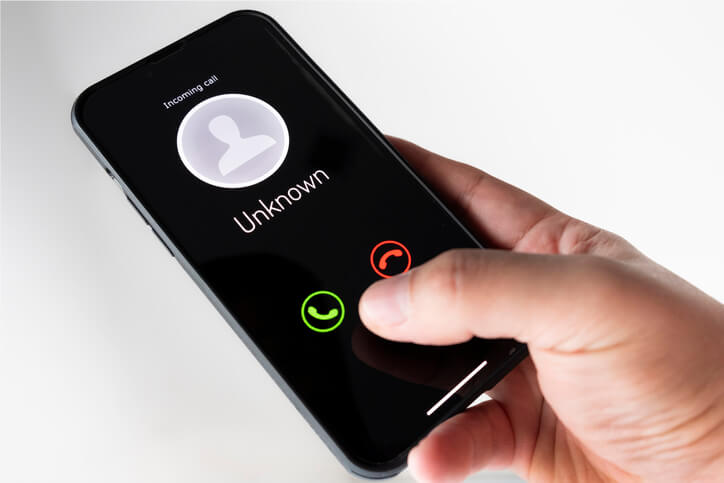Most international students dread the thought of taxes when they are in the United States.
After all, there is so much focus on without getting confused about things like tax forms and treaties.
Many international students need help with their taxes – this can leave them vulnerable to people looking to exploit them.
Tax and Internal Revenue Service scams have been on the rise over the past few years. Here at Sprintax, we strive to educate and assist international students in the US so that they don’t make mistakes when it comes to tax.
That’s why we’ve put together this blog post that will discuss common scams and how you can seek to avoid them.
What is a tax scam?
What is a tax scam, you may wonder.
Cybercriminals use what is known as a tax scam to trick citizens into handing over sensitive information or money.
Tax scams can occur in a variety of ways.
Scammers may use mail, telephone, or email to target individuals.
That’s why it’s important to understand the different scams that criminals use to achieve their goals.
Beware of IRS scam calls
Scam calls are reported quite frequently and can take place at any time.
The first thing you should know is that the IRS will never call or text you first to inform you of a problem – they will always send a letter first.
The issue that many nonresidents and international students in the US face is that they are unaware of this and that there may be different information being asked for from person to person.
With every passing year, reports of IRS identity theft are getting more frequent.
If you do get a scam call, it’s likely that your phone number will be one of many on an IRS scammer phone number list. Fake IRS calls and tax debt scam calls are reported in their thousands every year.
Information requested by the scammer
Often information requested from the scammer can range from simple personal information being taken to things like your IRS identity verification (they may ask you to verify identity number) being stolen or even credit card information – never give out bank account information, social security numbers (SSN), or credit and debit card details to anyone purporting to be an IRS worker.
Thieves can even go as far as threatening to arrest individuals, claiming that they have made mistakes on their tax returns. Even if you think you have received a voicemail from the IRS – it is likely you are being targeted for a scam.
International students have even reported having zoom calls with supposed IRS agents where they have been asked to provide personal information.
You should be advised that the IRS will never request a zoom meeting with you.

IRS email scams
Scammers thrive by using phishing emails to trick potential victims into handing over personal information. IRS email scams are particularly popular with scammers.
Again, this information can range from passwords to credit card numbers. Don’t take the bait.
Quite often, the scammers will:
- Set up emails posing as a source such as the IRS
- Have logos and templates set up very similarly to the IRS emails
- Send emails carrying an ‘urgent’ message
- Send emails asking you to open a link
- Ask you to ring a number (the number will look similar to the IRS number)
How to avoid email tax scams
There are a few ways you can avoid this, but there is every chance that you will come across a phishing scam during your time in the US. Always make sure to keep your computer and phone secure.
Install any security software and make sure it updates when required. Always use strong passwords, have different passwords for different things, and ensure 2-factor authentication is on.
Look for “https” addresses and encrypted sites, and back up your files at least once a week.
Also, remember that the IRS will never send a tax refund notification email, so never open one, even if it looks legit.

Tax transcript scams
Of course, new IRS imposter scams are being created all the time.
A new form of IRS scams l known as a ‘tax transcript scam’ has been growing over the past number of years.
This is a fraudulent email campaign, pretending to be from the IRS.
The instructions on the email generally try to convince the person to open an attachment, which opens a malware link on to your computer.
In recent years, the IRS issued reminders that they never send unsolicited emails asking to open links.
If you received this email, the IRS recommends you forward it to phishing@irs.gov.
The IRS have also reminded users that idverify.irs.gov is legit and the best way to verify your identity – if you see a similar link sent to you via email, it’s advised to ignore it and type it in manually online.
Fake IRS letter
Another avenue potential scammers may go down is false IRS scams by mail, where they may ask for information or forms to be filed.
Because you receive a letter, you may automatically feel that it is definitely the IRS – but this is not always the case.
Added to this, scammers will know exactly what IRS letters look like and will go to great lengths to copy them.
If you are ever in doubt about a letter you receive, reach out to the IRS on one of its publicly listed numbers, so you know it’s really them.
Many scammers target individuals at the start of the tax year.
The IRS will never ask for a current tax year tax return to be filed that early, so if you receive a letter from them at the start of the tax year, that’s how you know you have received an IRS letter scam.
A few other pieces of information to look out for include:
- No logo on the letter – the IRS always will include a logo on their letters.
- Grammatical errors/misspellings
- Demanding payments/tax returns urgently
- Informing you you have won something or they are accepting gift cards/iTunes cards etc.
IRS identity theft
Quite often, scammers are very intelligent and know where to look to get a big payout.
Tax refund scams are therefore one of the most reported tax scams we have seen.
How do tax refund scams work
IRS refund scams are unfortunately also rising in popularity.
In this situation, a scammer may steal your personal information and file a tax return with it.
If you are expecting a tax refund check, they will receive it as they use their credit card information with your name.
There are a number of ways to know if this affects you, including:
- File a tax return and if there has been one filed in your name, you may be victim of a tax refund scam
- The IRS will notify you if there has been an account set up in your name
- The IRS sends you a transcript that you didn’t request

How does the IRS contact you about taxes?
As previously mentioned, the IRS doesn’t contact citizens by email.
It also doesn’t use channels like social media or text.
The first point of contact with the IRS if they are trying to contact you is normally by letter – this is delivered by the US Postal Service.
In rare situations, IRS employees might call or visit with a taxpayer – this is usually preceded by a letter with a notice of it.
Reporting tax scams
It’s not always easy to avoid IRS tax fraud scams.
It’s vital you act quickly to ensure that the situation is reported to the IRS.
How to report tax scam phone calls
Many people are often confused after they receive a scall call, and are thus unsure where to report tax scams.
There are steps that you should take when it comes to reporting IRS tax scams:
- Report the call to TIGTA using their IRS Impersonation Scam Reporting form or by calling 800-366-4484.
- Report the number to phishing@irs.gov and be sure to put IRS Phone Scam in the subject line.
By acting quickly and following these steps you’ll be in a good position to avoid potential IRS identity theft.
How to safely file your taxes
The best way to file your taxes is with Sprintax!
By using Sprintax, not only will you be fully tax compliant when filing, you will also be sure to claim your MAXIMUM US tax refund!
Sounds good? Why not apply online today?








